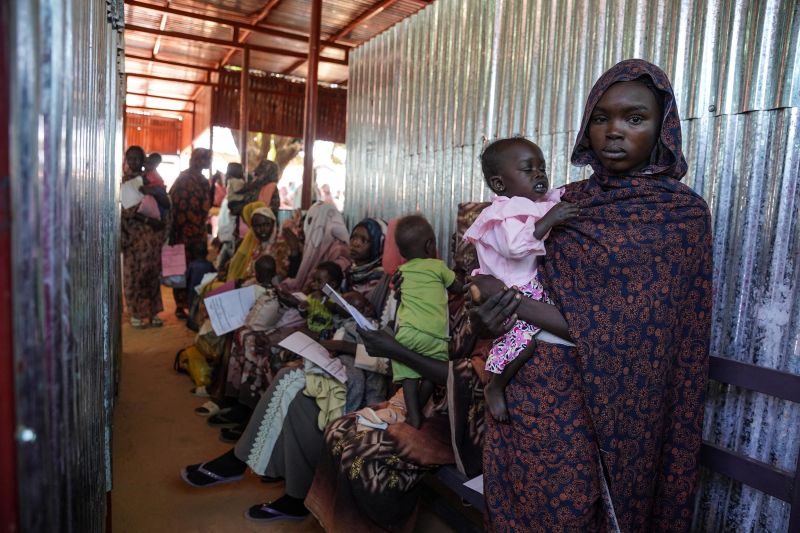The encroachment of famine in Sudan’s Darfur region is the latest alarming reality of a conflict-riddled region ravaged by months of civil war. UN agencies and non-profit organizations have declared that over 350,000 people are living in famine conditions, a reflection of the extensive humanitarian crisis unfolding in the country.
Conflict-driven Displacement
Civil war in Sudan has imposed a debilitating impact on Darfur’s population, leading to mass displacements. According to United Nations reports, more than two million people have been displaced from their homes as a direct result of violent clashes. Displaced populations often end up in inhumane living conditions with limited access to food, water, and health services. These aspects have driven Darfur into a vicious cycle of deprivation and starvation, with conflict-induced displacement aggravating food insecurity at staggering levels.
Agriculture and Livestock Disruptions
The civil war has led to the widespread destruction of agricultural land, which significantly contributes to famine conditions. Most of Darfur’s population is agrarian, relying heavily on farming and rearing livestock for sustenance and income. Conflict has hindered farming activities, mainly due to forced displacements and security concerns. As a result, food production has significantly declined, compounding the dire situation.
Violence against Aid Workers
Alarmingly, aid work in Darfur has been marred by violence against humanitarian workers, leading to a severe reduction in aid provision. Aid organizations, including the World Food Program (WFP), have faced challenges accessing conflict-ridden areas due to security threats, further intensifying the food crisis.
Economic Deterioration
Sudan, as a nation, is grappling with economic deterioration and hyperinflation. The Sudanese pound has massively devalued, and families are struggling to afford basic food supplies. This economic crisis, ridden with high food and commodity prices, has seen millions of Sudanese citizens struggle to meet their food requirements, pushing vast populations into famine-grade food insecurity.
Global Response and The Road Ahead
International response to the famine in Darfur has been extensive. Several humanitarian organizations have ramped up efforts to provide emergency food and medical aid. However, widespread conflict and violence limit their reach and constrain their intervention attempts.
As famine grips Darfur relentlessly, concerted efforts are needed from global actors to manage this catastrophic humanitarian crisis. The international community must take immediate action by implementing robust peacekeeping measures, safeguarding humanitarian corridors, and investing in resilient food systems. Only by addressing the root causes of the conflict can we hope to pull Darfur and its people back from the brink of the worst kind of human suffering.




